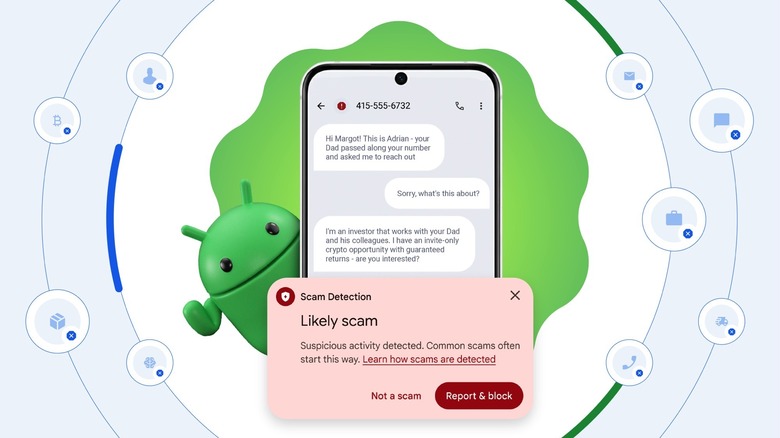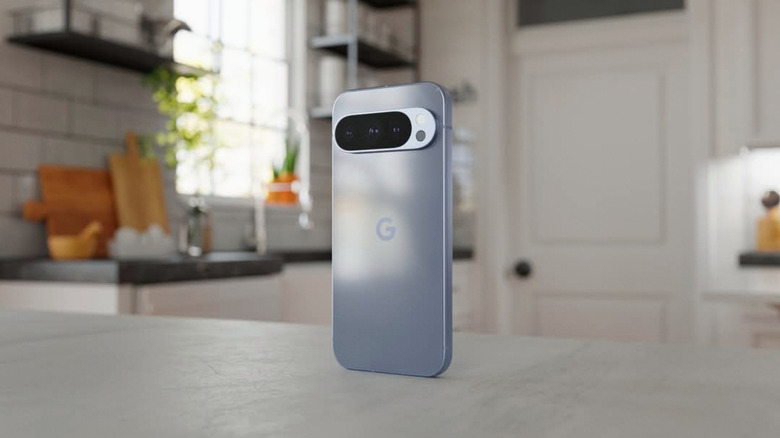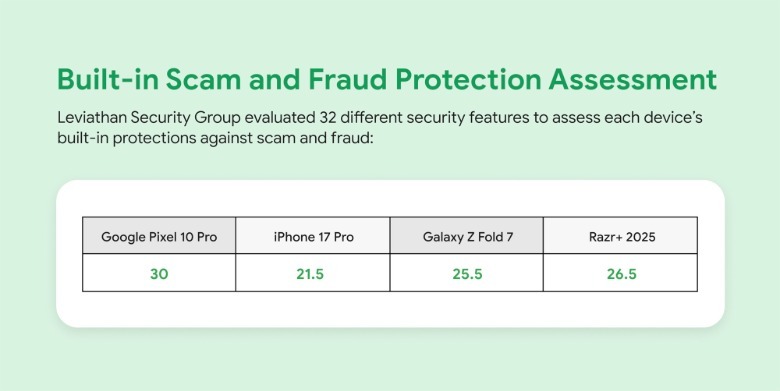Google Says iPhone More Likely To Get Scam Texts And Calls Than Android
Android phones, and especially Pixel phones, are better at protecting consumers against scams than iPhone users, Google's Android team said in a report released on Thursday to mark the end of Cybersecurity Awareness Month. Google offered stats from its own surveys and research conducted by third-party firms that indicate protection against scam texts and calls is better on Android than on iPhone devices. While protections exist on both platforms, the company noted in a blog post that the scams are increasingly convincing. This year alone, over $400 billion was stolen globally. Only about 4% of victims recovered their money, a detail that further underscores the dangers of engaging with text messages and answering calls from fraudsters.
Google notes that Android "has been on the frontlines in the battle against scammers for years," using AI tools to "anticipate and block" scams before they can reach users. The built-in protections catch over 10 billion suspected scam calls and texts every month, Google reports. Furthermore, the company says the safety checks built into Android's RCS messaging system let it block access to the service for numbers believed to engage in malicious activities. Google says it blocked over 100 million numbers from RCS last month alone, preventing scams before they can unfold.
Is Android really safer than iPhone?
Google conducted a study with YouGov that surveyed over 5,000 smartphone users in the U.S., India, and Brazil, finding that Android users received fewer scam texts and felt safer. Android users were 58% more likely than iPhone users to say they had not received a scam text in the week before answering the survey. For Pixel users, that percentage rose to 96%. iPhone users were 65% more likely than Android users to receive three or more scam texts in a week. Compared to Pixels, iPhone users were 136% more likely to get scam messages. Finally, Google says that Android device owners were 20% more likely than iPhone users to say the built-in scam protections are "very effective" or "extremely effective." Compared to Pixel phones, iPhone users were 150% more likely to say their device was not effective.
Google also quoted research studies conducted by third parties. Counterpoint Research compared the newest Pixel, Samsung, Motorola, and iPhone devices, finding that Android offers protections across nine key areas including email, browsing, calls, texts, app malware, and anti-theft protections. The iPhone offered protections only for messaging and app malware.
Leviathan Security Group looked at four specific phone models, including the iPhone 17 Pro, Moto Razr+ 2025, Pixel 10 Pro, and Samsung Galaxy Z Fold 7. They cybersecurity experts found that Android phones provide "the highest level of default scam and fraud protection," according to Google. Leviathan highlighted "Android's robust call screening, scam detection, and real-time scam warning authentication capabilities as key differentiators." The Leviathan team looked at 32 security features, finding that the Pixel 10 Pro satisfied 30 of them, compared to 21.5, 25.5, and 26.5 for the iPhone 17 Pro, Galaxy Z Fold 7, and Moto Razr+ 2025.


